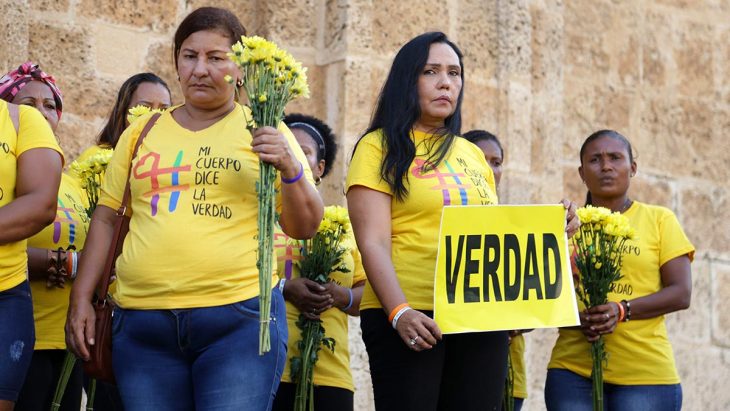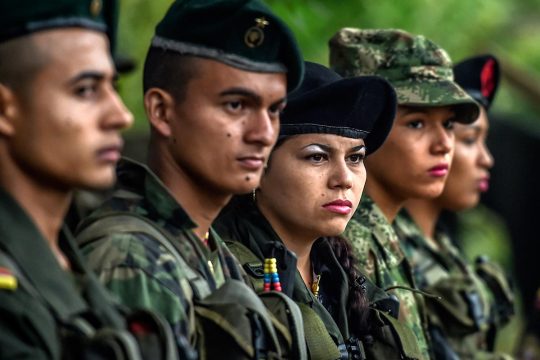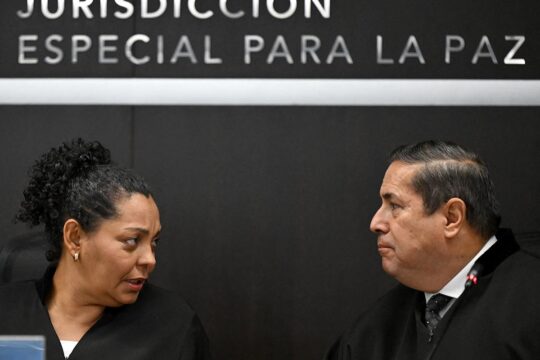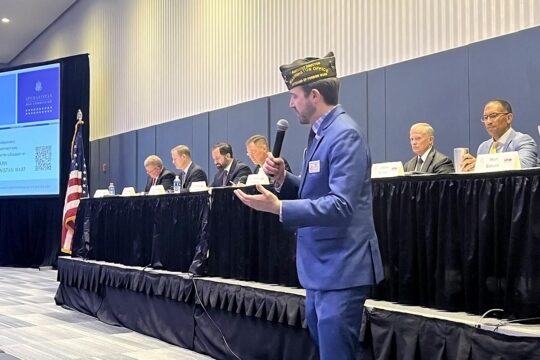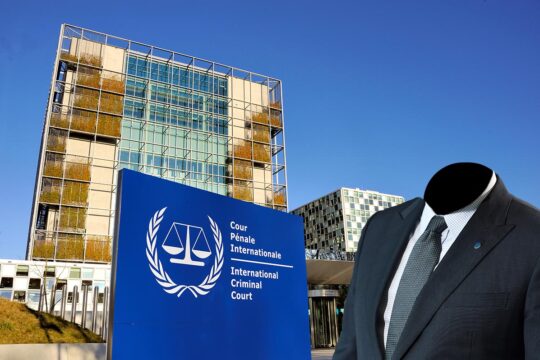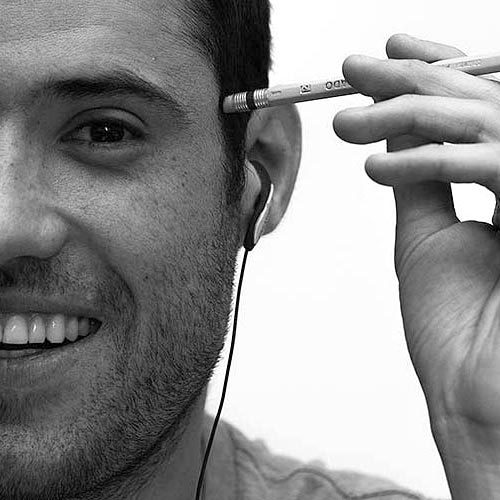Colombia’s Truth and Reconciliation Commission (TRC) just completed its first in a three-year term, in which more than establishing what happened, it seeks to find a common ground that can foster reconciliation. “Our goal is not to disrupt this country, point fingers or sow more hate and division, but rather to arrive at a truth that may give all Colombians a wider understanding on how, whether by action or omission, we arrived at a human tragedy that numbers almost 9 million victims,” said Jesuit priest Francisco de Roux, the Commission’s president.
To do so, the TRC first had to agree on what its strategy to build truth would be. Part of its eleven commissioners initially viewed their central mission as cobbling together an in-depth report on what had led Colombia down this path. Another half saw it more along the lines of the ‘third generation’ TRCs like Peru’s, which sought to involve society in public hearings where truth is clarified and to enable collective catharsis from atrocities. In the end, they settled on doing both. While ten teams are working on gathering information, others have been organising gatherings in which citizens can share their stories and reflect together.
At the same time, the TRC is one of three institutions in a broader transitional justice system, in which a Special Peace Jurisdiction (JEP) is responsible for judicial accountability and another agency seeks out persons who have been deemed missing. It’s the TRC’s responsibility to certify which perpetrators have satisfactorily contributed to truth and may therefore qualify for more lenient sanctions.
5.243 victims heard by the TRC
Until December, the TRC had listened to 5.243 victims and 10.755 persons, in formats including individual interviews, collective testimonies and hearings with names such as ‘encounters for truth’ and ‘dialogues for non-recurrence’ in which it has sought citizens’ take on how to solve problems like the alarming rise in attacks against human rights defenders.
However, its work has had limited national visibility, undercut by President Iván Duque’s decision not to attend its inauguration in November 2018 or give it any public recognition. This political reality makes widening the TRC’s credibility all the more important, with replacing journalist Alfredo Molano, who died of cancer in October, one of its key challenges today. A new commissioner will be chosen on April 1st, after a public call for candidates.
In a scenario in which the transitional justice system has been the object of political bickering, this could provide a unique opportunity for the TRC to select someone capable of allaying the fears of population groups who have been sceptical of its work on account of a perceived left-wing and academic bias. These include businessmen, right-wing parties and the military, even though one of its commissioners is a retired army major.
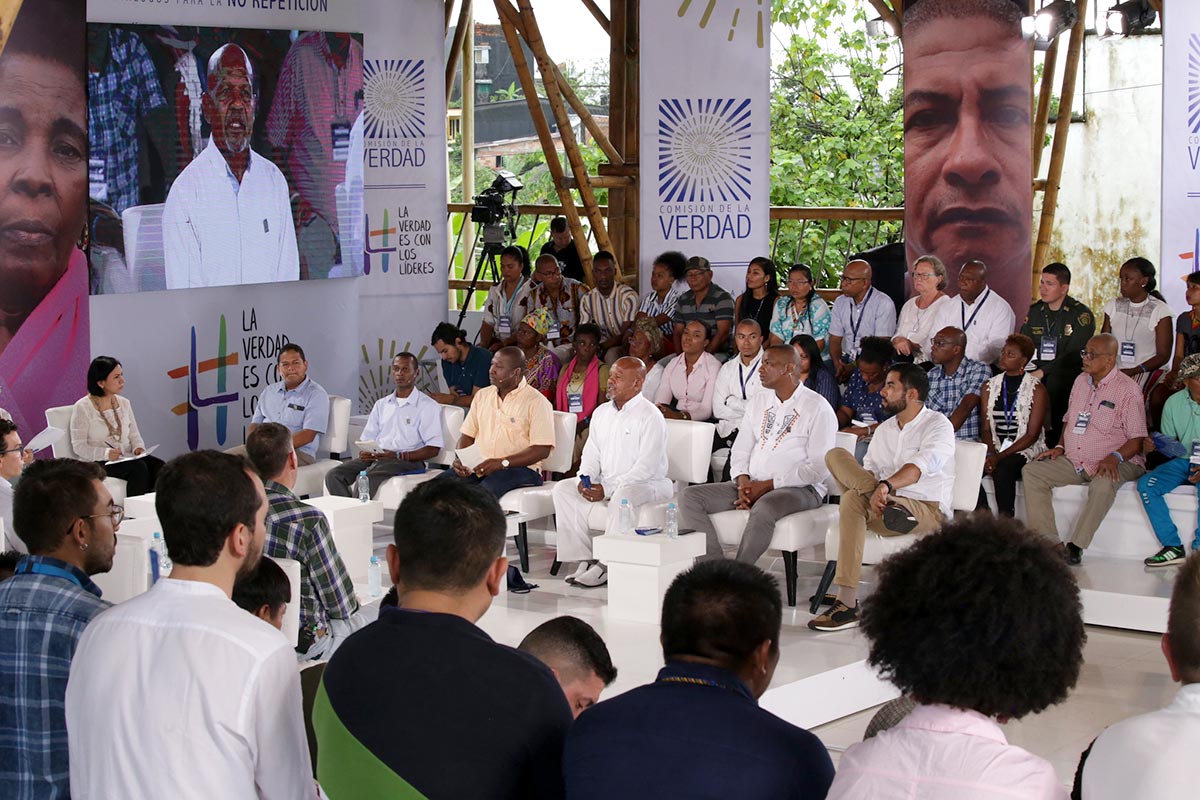
A decade’s work seeking truth
Segments of society that are wary of the truth commission are already finding a new ally: the national government. Just over a decade ago, the demobilization of paramilitary groups during Álvaro Uribe’s government (2002-2010) brought a significant feat with it: a Historical Memory Group was created to begin documenting dark episodes of Colombia’s recent history, with an emphasis on emblematic crimes perpetrated by those non-state actors.
In 2011, when his successor Juan Manuel Santos signed a landmark victims’ bill to officially acknowledge the victims of the armed conflict and begin redressing them, this group got a major boost. It then became a government agency called the National Centre for Historical Memory, which scaled up research on violence during conflict and extended it to armed groups, including the Revolutionary Armed Forces (FARC) and National Liberation Army (ELN) guerrillas and state actors.
Led by respected sociologist Gonzalo Sánchez, the centre spearheaded an impressive body of academic work. Over two different administrations, it has produced 102 book-length investigations documenting human rights violations and diverse effects of Colombia’s conflict, ranging from forced displacement, land dispossession, sexual violence and kidnappings to violence towards indigenous communities, local politicians, journalists or transgender persons. With its wide scope and dedicated teams of researchers, this corpus has led many to believe that Colombia has already advanced much towards building the truth.
These are also the reports that the TRC has used to feed its work and that the JEP has been using to decide which international crimes it prioritises and to build its macro cases. Yet, amid the partisan bickering and widespread polarization that engulfed the peace deal with FARC, the centre has recently been caught in political turmoil.
The Memory Centre’s sudden swerve
As President Duque charged against a transitional justice system he and his party say they don’t trust and returned to Uribe’s narrative that Colombia never suffered an internal armed conflict but a terrorist threat, they also paved the way for an institution whose work had garnered a rare instance of political consensus to switch courses.
After Duque’s first candidate to lead the National Centre for Historical Memory stepped down amid controversy, he chose Darío Acevedo, a previously little-known historian and university professor whose views on Colombia’s recent history have made him a divisive figure. “Although the victims’ bill says what we endured was an armed conflict, this cannot be made an official truth,” Acevedo said in an interview after being tapped.
Many victims and organisations were alarmed. The Colombian Network of Places of Memory, which comprises 28 memory sites nationwide, suspended the centre’s membership last month citing an “evident contempt for victims and places of memory”. The International Coalition of Sites of Conscience, a global historical memory network, followed suit.
Acevedo has dismissed critiques as a politically-motivated smear campaign by “owners of truth”. “They have elevated the notion of armed conflict as dogma, as if its acknowledgment sheds light on all of the country’s problems,” he wrote in a recent op-ed piece, in which he accused his critics of waging a “Holy Inquisition” and “Jihad” against him and compared them to Stalin’s infamous purges or the Ministry of Truth in George Orwell’s 1984.
In February, Acevedo unveiled the centre’s public call for proposals for new investigations on the effects of the armed conflict, offering up to 100,000 dollars for research groups and designating officials at the newly-created Science Ministry as jurors. In an annex, it details which investigation lines will be considered, including crimes perpetrated by guerrillas, environmental crimes and the effects of conflict on specific population groups such as the military, businessmen, the elderly or the handicapped.
Many of these topics make sense, as they have not been the object of exhaustive investigation. As JusticeInfo showed, scientists and environmental leaders have been pushing for research on the ways in which the environment and its caretakers were affected by war. Military were not frequently sought as sources until the centre’s 2017 report on landmine victims.
More questionable is the centre’s decision to close the door on research on crimes perpetrated by paramilitary groups or state actors such as the military or police, while it still promotes an entire subtopic on crimes committed by four guerrillas, including the now disarmed FARC and the still active ELN. “Its research lines are biased and have a clear ideological background, suggesting that guerrillas were the only perpetrators,” said an open letter from the faculty of social sciences at the University of Antioquia, one of the largest in the country, inviting researchers not to submit proposals.
“Some of the greatest contributions towards understanding the armed conflict over the past decade have come from the centre, but its new director doesn’t seem willing to build on previous work or acknowledge its quality,” says Javier Revelo Rebolledo, a political scientist and professor at Rosario University who also decided against participating. “I think excluding certain actors is problematic. It’s reasonable to expect that we’ll see more research on FARC’s deeds and victims, given that they’re appearing before the transitional justice. It shouldn’t be a political decision, but rather the result of the spirit of the times,” he adds.
A space for sceptical sectors
Duque’s government has been actively seeking to work with those groups who are wary of the TRC. One month ago, Acevedo and Fedegan, the largest guild grouping cattle ranchers, announced they’re considering a joint agreement to recover the memory of victims in the Colombian countryside.
The union claims to have identified 10.000 rural entrepreneurs who over decades endured kidnapping, extortion and cattle theft by groups like FARC, a plight they say the Government has failed to acknowledge. “The Truth Commission seeks to portray businessmen as perpetrators, when they were victims (…) We want to advance in building a part of history that others have tried to deny,” said its president José Félix Lafaurie, a vocal critic of the peace deal and married to a senator from Duque’s party.
Critics fear that an investigation spearheaded by its own subjects could end up whitewashing the sector’s image, given some rancher’s double role as rural entrepreneurs heavily affected by war and funders and promoters of paramilitary groups originally born to counter guerrillas in the 1980s but eventually responsible for thousands of homicides and massacres. Lafaurie’s predecessor, Jorge Visbal, was convicted by the Supreme Court of supporting and advising the paramilitary and is now seeking admission to the transitional justice.
In the end, cattle ranchers have been both victims and perpetrators, or what legal scholar Iván Orozco has dubbed “dual responsibilities”, a complex reality that could be overlooked were its union to lead the investigative efforts.
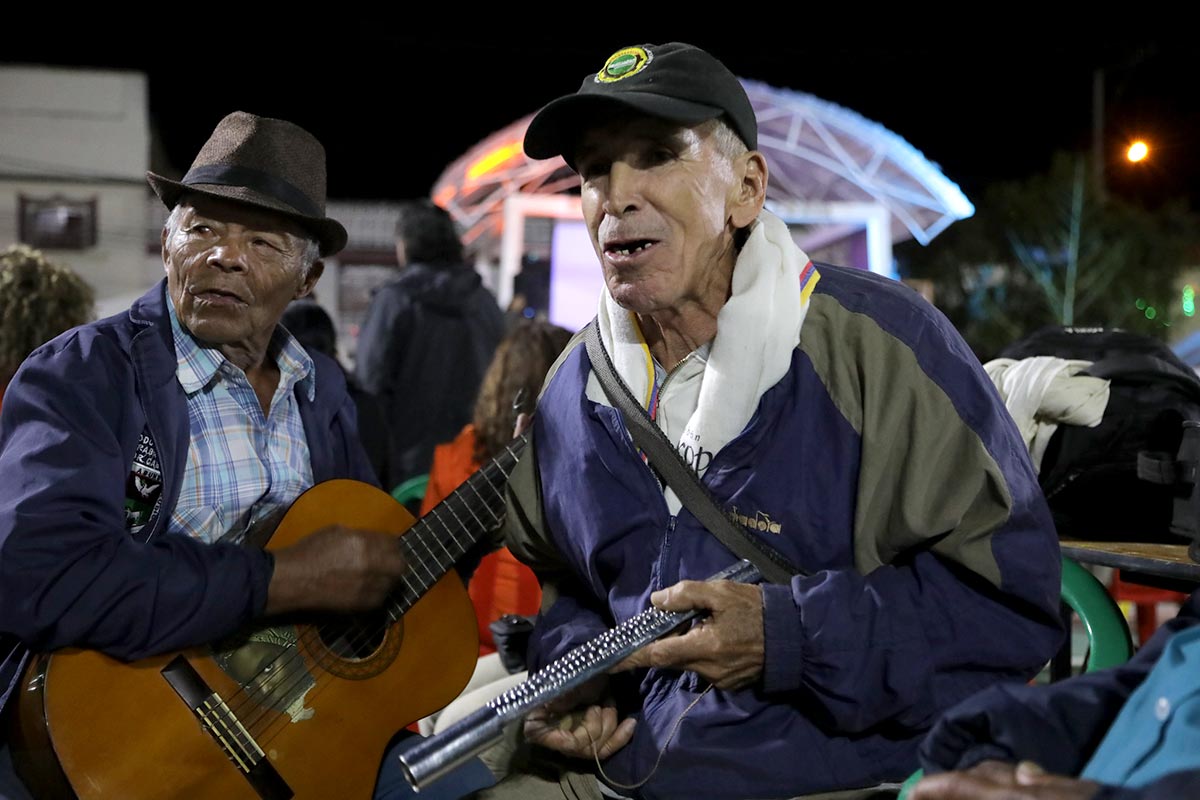
Memorials caught up in politics
The tug-of-war over historical memory has also extended to the artistic sphere, as Duque has avoided lauding anything connected to the peace deal signed by his predecessor.
In December 2018, a public memorial built using the metal from the weapons laid down by FARC was unveiled in downtown Bogota. Conceived by Doris Salcedo, arguably the country's best-known artist internationally, ‘Fragments’ is a haunting reminder of everything Colombians lost over half-a-century of senseless violence.
Salcedo, known for her crack on the floor of Tate Modern’s Turbine Hall, worked with 25 survivors of sexual violence, pounding 37 tonnes of scrap metal – stemming from the melting of 8.994 rifles decommissioned by the United Nations – into 1300 plaques. She then laid them as tiles on the floor of a colonial-era house’s ruins, in what she termed a ‘counter-monument’ designed to evoke the plight of victims. Duque decided not to attend its inauguration, even though it is located one block away from the presidential palace.
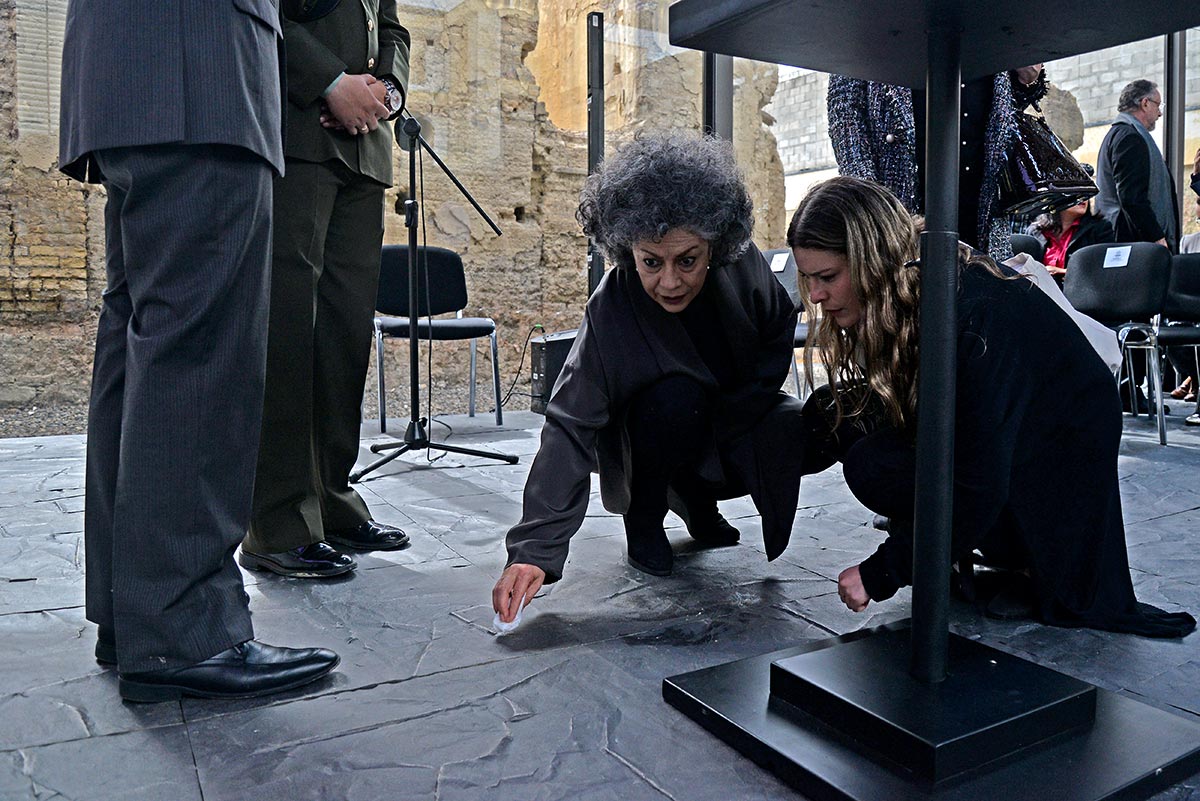
A similar scene took place in the UN’s New York headquarters, where another peace-related monument was installed in the garden facing the Hudson River on August 2019. This sculpture, a 6-metre-high golden-hued canoe facing skywards made by artist Mario Opazo from seven tonnes of bullets handed over by FARC, was to “be inaugurated in March 2020 by the Colombian government in a formal ceremony”, according to Culture Minister Carmen Inés Vásquez’s promise. Duque met UN Secretary General António Guterres last week in New York, but not a word was mentioned on the memorial.
However, Duque did lay down the first stone for the future National Historical Memory Museum in Bogota last month, a long-postponed promise that will finally come to life. What its narrative will be, and whether it incorporates the work of both the Centre and the TRC, will show if Colombians can eschew politics and find truths that reconcile instead of dividing them.


